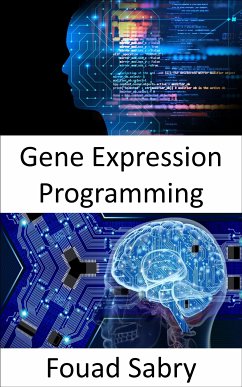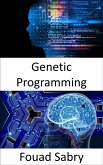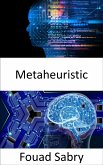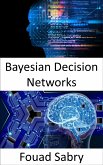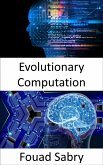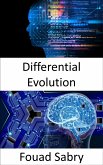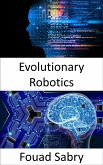What Is Gene Expression Programming
Gene expression programming, often known as GEP, is an evolutionary technique used in the field of computer programming that is used to construct computer programs or models. These computer programs take the form of complex tree structures that, in a manner analogous to that of real organisms, are able to learn and adapt by altering their sizes, forms, and composition. In addition, just like the chromosomes of real creatures, the GEP computer programs are encoded in simple linear chromosomes that are a predetermined length. GEP is an example of a genotype-phenotype system since it possesses both a simple genome for the purpose of storing and transmitting genetic information and a complex phenotype for the purpose of exploring the environment and adapting to it.
How You Will Benefit
(I) Insights, and validations about the following topics:
Chapter 1: Gene expression programming
Chapter 2: Symbolic regression
Chapter 3: Decision tree
Chapter 4: Evolutionary algorithm
Chapter 5: Genetic algorithm
Chapter 6: Genetic programming
Chapter 7: Grammatical evolution
Chapter 8: Artificial intelligence
Chapter 9: Machine learning
Chapter 10: Artificial neural network
(II) Answering the public top questions about gene expression programming.
(III) Real world examples for the usage of gene expression programming in many fields.
Who This Book Is For
Professionals, undergraduate and graduate students, enthusiasts, hobbyists, and those who want to go beyond basic knowledge or information for any kind of gene expression programming.
What is Artificial Intelligence Series
The artificial intelligence book series provides comprehensive coverage in over 200 topics. Each ebook covers a specific Artificial Intelligence topic in depth, written by experts in the field. The series aims to give readers a thorough understanding of the concepts, techniques, history and applications of artificial intelligence. Topics covered include machine learning, deep learning, neural networks, computer vision, natural language processing, robotics, ethics and more. The ebooks are written for professionals, students, and anyone interested in learning about the latest developments in this rapidly advancing field.
The artificial intelligence book series provides an in-depth yet accessible exploration, from the fundamental concepts to the state-of-the-art research. With over 200 volumes, readers gain a thorough grounding in all aspects of Artificial Intelligence. The ebooks are designed to build knowledge systematically, with later volumes building on the foundations laid by earlier ones. This comprehensive series is an indispensable resource for anyone seeking to develop expertise in artificial intelligence.
Gene expression programming, often known as GEP, is an evolutionary technique used in the field of computer programming that is used to construct computer programs or models. These computer programs take the form of complex tree structures that, in a manner analogous to that of real organisms, are able to learn and adapt by altering their sizes, forms, and composition. In addition, just like the chromosomes of real creatures, the GEP computer programs are encoded in simple linear chromosomes that are a predetermined length. GEP is an example of a genotype-phenotype system since it possesses both a simple genome for the purpose of storing and transmitting genetic information and a complex phenotype for the purpose of exploring the environment and adapting to it.
How You Will Benefit
(I) Insights, and validations about the following topics:
Chapter 1: Gene expression programming
Chapter 2: Symbolic regression
Chapter 3: Decision tree
Chapter 4: Evolutionary algorithm
Chapter 5: Genetic algorithm
Chapter 6: Genetic programming
Chapter 7: Grammatical evolution
Chapter 8: Artificial intelligence
Chapter 9: Machine learning
Chapter 10: Artificial neural network
(II) Answering the public top questions about gene expression programming.
(III) Real world examples for the usage of gene expression programming in many fields.
Who This Book Is For
Professionals, undergraduate and graduate students, enthusiasts, hobbyists, and those who want to go beyond basic knowledge or information for any kind of gene expression programming.
What is Artificial Intelligence Series
The artificial intelligence book series provides comprehensive coverage in over 200 topics. Each ebook covers a specific Artificial Intelligence topic in depth, written by experts in the field. The series aims to give readers a thorough understanding of the concepts, techniques, history and applications of artificial intelligence. Topics covered include machine learning, deep learning, neural networks, computer vision, natural language processing, robotics, ethics and more. The ebooks are written for professionals, students, and anyone interested in learning about the latest developments in this rapidly advancing field.
The artificial intelligence book series provides an in-depth yet accessible exploration, from the fundamental concepts to the state-of-the-art research. With over 200 volumes, readers gain a thorough grounding in all aspects of Artificial Intelligence. The ebooks are designed to build knowledge systematically, with later volumes building on the foundations laid by earlier ones. This comprehensive series is an indispensable resource for anyone seeking to develop expertise in artificial intelligence.
Dieser Download kann aus rechtlichen Gründen nur mit Rechnungsadresse in A, B, BG, CY, CZ, D, DK, EW, E, FIN, F, GR, H, IRL, I, LT, L, LR, M, NL, PL, P, R, S, SLO, SK ausgeliefert werden.

